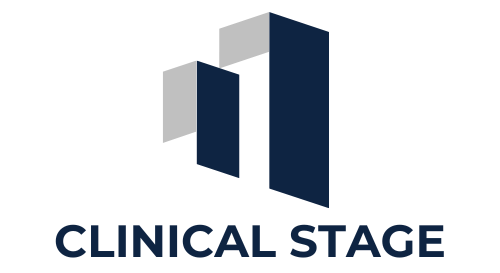The Future of Clinical Trials: Trends and Predictions
Clinical trials are the cornerstone of medical research, providing the critical data needed to evaluate the safety and efficacy of new treatments and interventions. The landscape of clinical trials has evolved significantly over the past few decades, driven by advancements in technology, changes in regulatory frameworks, and shifts in patient expectations. Today, we stand at the cusp of another transformative era in clinical trials, where the integration of cutting-edge technologies and innovative methodologies promises to revolutionize the field.
Understanding and anticipating future trends and innovations in clinical trials is paramount for stakeholders across the healthcare spectrum, from pharmaceutical companies and regulatory bodies to healthcare providers and patients. These insights can help streamline trial processes, improve patient outcomes, and ultimately bring life-saving treatments to market more efficiently.
In this blog, we will explore the current landscape of clinical trials and delve into emerging trends and predictions that are set to shape the future of this crucial domain. We will examine the role of digital technologies, the impact of regulatory changes, and the increasing emphasis on patient-centric approaches. By providing a comprehensive overview, this blog aims to equip industry professionals with the knowledge needed to navigate the evolving clinical trial environment and capitalize on the opportunities that lie ahead.
Decentralized and Virtual Trials
Decentralized clinical trials (DCTs), also known as virtual trials, leverage digital health technologies to conduct clinical research remotely, reducing or eliminating the need for physical site visits. This approach involves the use of telemedicine, mobile health (mHealth) devices, electronic health records (EHRs), and other digital tools to collect and monitor data from participants in their own homes.
The benefits of decentralized trials are manifold:
- Increased Accessibility and Participation: By removing geographic barriers, DCTs enable participation from a more diverse and representative patient population. This inclusivity can lead to more robust and generalizable findings.
- Enhanced Patient Convenience and Compliance: Participants can engage with the study from the comfort of their homes, reducing the burden of travel and time commitment. This convenience often translates to higher retention and compliance rates.
- Accelerated Recruitment and Timelines: Virtual trials can expedite the recruitment process by broadening the pool of potential participants. The streamlined logistics and remote monitoring can also shorten the overall duration of the trial.
- Cost-Effectiveness: By minimizing the need for physical infrastructure and reducing operational costs associated with site visits, decentralized trials can be more cost-effective than traditional models.
Impact of COVID-19 on the Adoption of Virtual Trials
The COVID-19 pandemic acted as a catalyst for the rapid adoption of decentralized clinical trials. With social distancing measures and lockdowns in place, traditional clinical trial operations faced significant disruptions. Researchers and sponsors had to pivot quickly to ensure the continuity of their studies while safeguarding participant safety.
This shift accelerated the integration of virtual trial methodologies, as many regulatory bodies, including the FDA and EMA, issued guidance to facilitate remote trial conduct. The pandemic highlighted the feasibility and efficacy of decentralized trials, demonstrating that high-quality data could still be collected without compromising participant safety or study integrity.
Case Studies of Successful Decentralized Trials
Several case studies exemplify the success of decentralized clinical trials:
- Johnson & Johnson's HEARTLINE Study: This large-scale, virtual study aims to assess whether a new heart health engagement program, delivered through a mobile app, can improve heart health outcomes. By utilizing smartwatches and smartphones to collect data, the study has effectively engaged a wide participant base without the need for in-person visits.
- Pfizer's REMOTE Trial: Conducted in 2011, this groundbreaking study tested the feasibility of a fully remote clinical trial. Although challenges were encountered, the REMOTE trial paved the way for future virtual studies by demonstrating the potential of remote data collection and patient engagement.
- Sanofi's Diabetes Management Study: Sanofi conducted a decentralized trial to evaluate a new diabetes management program. Participants used continuous glucose monitors and other digital tools to provide real-time data. The study achieved high retention rates and demonstrated improved patient outcomes, underscoring the efficacy of the decentralized approach.
- Notable Labs is at the forefront of transforming clinical trials through its Predictive Precision Medicine Platform (PPMP). This innovative platform leverages AI and real-world data to enhance patient outcomes by accurately predicting trial results. Recently, Notable Labs has made significant strides in utilizing cryopreserved samples, advancing the use of Volasertib in Phase 2 trials for relapsed/refractory AML, and demonstrating the effectiveness of PPMP in various scientific presentations. These advancements position Notable Labs as a leader in the future of clinical trials, emphasizing precision and predictive capabilities.
These examples illustrate the potential of decentralized clinical trials to revolutionize the research landscape, making studies more accessible, efficient, and patient-centric. As the industry continues to embrace these innovations, the future of clinical trials looks promising, with technology-enabled methodologies driving progress and improving outcomes for all stakeholders.
Integration of Artificial Intelligence and Machine Learning
Role of AI and ML in Clinical Trial Design and Execution
Artificial Intelligence (AI) and Machine Learning (ML) are transforming the clinical trial landscape by enhancing the design, execution, and analysis of studies. These technologies enable researchers to process vast amounts of data quickly and accurately, leading to more informed decision-making and optimized trial processes.
- Trial Design Optimization: AI and ML algorithms can analyze historical trial data to identify patterns and predict outcomes, helping researchers design more effective and efficient studies. These insights can optimize various aspects of trial design, including sample size determination, endpoint selection, and stratification criteria.
- Automated Data Collection and Analysis: AI-driven tools can automate data collection from various sources, such as electronic health records (EHRs), wearable devices, and patient-reported outcomes. Machine learning algorithms can then analyze this data in real-time, identifying trends and anomalies that might indicate safety issues or efficacy signals.
- Risk-Based Monitoring: AI and ML can enhance risk-based monitoring by continuously analyzing trial data to identify potential risks and deviations from the protocol. This proactive approach allows for timely interventions, ensuring data integrity and participant safety.
Predictive Analytics for Patient Recruitment and Retention
One of the most significant challenges in clinical trials is patient recruitment and retention. Predictive analytics, powered by AI and ML, can address these challenges by:
- Identifying Suitable Participants: AI algorithms can sift through large datasets, such as EHRs and genomic data, to identify potential participants who meet the study criteria. This targeted approach increases the likelihood of finding eligible participants and reduces recruitment timelines.
- Predicting Dropout Risks: Machine learning models can analyze demographic, behavioral, and historical data to predict which participants are at risk of dropping out. By identifying these individuals early, researchers can implement targeted interventions to improve retention rates.
- Personalized Engagement Strategies: AI-driven platforms can tailor engagement strategies based on individual participant profiles. Personalized communication and support can enhance participant satisfaction and adherence to the study protocol.
Examples of AI-Driven Clinical Trials
Several clinical trials have successfully integrated AI and ML to improve outcomes:
- IBM Watson for Oncology: IBM Watson has been used in various oncology trials to assist in patient selection and treatment recommendations. By analyzing patient data and clinical trial databases, Watson helps identify suitable candidates and potential treatment options, enhancing trial efficiency and patient outcomes.
- Verily's Project Baseline: Verily, a subsidiary of Alphabet, has launched Project Baseline, an initiative that uses AI and ML to map human health. This project aims to collect comprehensive health data from participants over several years, using AI to analyze the data and uncover insights that could inform future clinical trials and healthcare strategies.
- AI in Alzheimer's Disease Trials: AI and ML have been employed in Alzheimer's disease research to predict disease progression and identify biomarkers. For example, researchers have used machine learning algorithms to analyze brain imaging data, genetic information, and cognitive test results to improve participant selection and monitor disease progression.
These examples demonstrate the transformative potential of AI and ML in clinical trials. By leveraging these technologies, researchers can design more effective studies, recruit and retain participants more efficiently, and ultimately bring new treatments to market faster. As AI and ML continue to evolve, their integration into clinical trials will likely become even more sophisticated, driving further innovation and progress in medical research.
Personalized Medicine and Precision Trials
Concept of Personalized Medicine in Clinical Research
Personalized medicine, also known as precision medicine, tailors medical treatment to the individual characteristics of each patient. This approach considers genetic, environmental, and lifestyle factors to develop targeted therapies that are more effective and have fewer side effects. In clinical research, personalized medicine represents a paradigm shift from the traditional "one-size-fits-all" model to a more customized approach that can lead to better patient outcomes.
Benefits of Precision Trials in Drug Development
Precision trials, which are designed to test personalized therapies, offer numerous advantages in drug development:
- Improved Efficacy and Safety: By targeting therapies to patients who are more likely to benefit based on their genetic or molecular profiles, precision trials can increase the efficacy of treatments and reduce adverse effects. This approach can result in higher success rates for new drugs and a better benefit-risk ratio for patients.
- Enhanced Patient Stratification: Precision trials utilize biomarkers to identify subgroups of patients who are most likely to respond to a particular treatment. This stratification allows for more accurate and meaningful results, as the treatment effects are not diluted by non-responders.
- Accelerated Development Timelines: By focusing on specific patient populations, precision trials can often achieve their endpoints more quickly and with fewer participants than traditional trials. This efficiency can shorten the overall development timeline and reduce costs.
- Increased Likelihood of Regulatory Approval: Regulatory agencies, recognizing the potential of personalized medicine, have created pathways to expedite the approval of precision therapies. Drugs developed through precision trials may benefit from these streamlined regulatory processes, leading to faster market entry.
Case Studies Showcasing Personalized Medicine Approaches
- Keytruda (Pembrolizumab): Keytruda is an immunotherapy drug used to treat various cancers, including melanoma, lung cancer, and head and neck cancer. It was one of the first drugs to be approved based on a biomarker, specifically PD-L1 expression. Clinical trials demonstrated that patients with high PD-L1 expression responded better to Keytruda, leading to its approval as a precision medicine.
- Kalydeco (Ivacaftor): Kalydeco is a breakthrough treatment for cystic fibrosis (CF) caused by specific mutations in the CFTR gene. The drug targets the defective protein produced by the mutated gene, improving lung function and reducing disease symptoms. Precision trials showed significant benefits for patients with the G551D mutation, leading to its approval for this subset of CF patients.
- Herceptin (Trastuzumab): Herceptin is a monoclonal antibody used to treat HER2-positive breast cancer. Clinical trials demonstrated that patients with overexpression of the HER2 protein responded well to Herceptin, significantly improving survival rates. The success of Herceptin highlighted the potential of targeting specific genetic alterations in cancer treatment.
- FoundationOne CDx: FoundationOne CDx is a comprehensive genomic profiling test that identifies genetic mutations and alterations in cancer patients. By analyzing the tumor's genetic makeup, the test helps match patients with targeted therapies that are most likely to be effective. Precision trials using FoundationOne CDx have shown that patients who receive targeted therapies based on their genomic profiles have better outcomes than those who do not.
These case studies underscore the transformative impact of personalized medicine on drug development and patient care. As technology continues to advance and our understanding of genetics and molecular biology deepens, the role of personalized medicine in clinical research will only grow. Precision trials will become increasingly integral to developing new therapies, offering hope for more effective and tailored treatments across a wide range of diseases.
Advanced Data Analytics and Real-World Evidence
Use of Big Data and Advanced Analytics in Clinical Trials
The explosion of big data and advancements in analytics have ushered in a new era for clinical trials. Researchers now have access to vast amounts of health data from diverse sources, including electronic health records (EHRs), genomics, wearable devices, and patient-reported outcomes. Leveraging big data and advanced analytics in clinical trials offers several key benefits:
- Enhanced Data Quality and Completeness: Advanced analytics can process and integrate data from various sources, providing a more comprehensive and accurate picture of patient health. This integration enhances the quality and completeness of the data used in clinical trials.
- Improved Patient Recruitment and Retention: Big data analytics can identify potential trial participants who meet specific inclusion criteria by analyzing large datasets. This targeted approach improves recruitment efficiency and helps maintain higher retention rates by identifying and addressing potential dropout risks early.
- Real-Time Monitoring and Decision-Making: Advanced analytics enable real-time monitoring of clinical trial data, allowing researchers to detect trends, anomalies, and safety signals promptly. This capability supports more agile and informed decision-making throughout the trial process.
- Predictive Modeling: Machine learning and predictive analytics can model disease progression and treatment responses, helping to optimize trial designs and predict outcomes. These models can also identify potential biomarkers for targeted therapies.
Integration of Real-World Evidence (RWE) in Clinical Research
Real-world evidence (RWE) is derived from data collected outside of traditional clinical trials, such as EHRs, insurance claims, patient registries, and wearable devices. Integrating RWE into clinical research offers several advantages:
- Broader and More Representative Data: RWE encompasses a wider and more diverse patient population than traditional clinical trials, providing insights that are more representative of real-world settings.
- Longitudinal Data: RWE often includes longitudinal data, capturing long-term health outcomes and treatment effects over time. This information is valuable for understanding the sustained impact of interventions.
- Cost and Time Efficiency: Utilizing existing real-world data can reduce the cost and time associated with data collection in clinical trials. This efficiency is particularly beneficial for post-marketing surveillance and observational studies.
- Complementary Evidence: RWE complements traditional clinical trial data by providing additional context and validating trial findings in real-world settings. This comprehensive approach strengthens the overall evidence base for new treatments.
Impact of RWE on Regulatory Decisions and Trial Outcomes
Regulatory agencies are increasingly recognizing the value of RWE in informing regulatory decisions and enhancing trial outcomes. The impact of RWE is evident in several key areas:
- Regulatory Approvals: Agencies such as the FDA and EMA have developed frameworks for incorporating RWE into regulatory submissions. RWE can support regulatory approvals by providing evidence of a drug's effectiveness and safety in broader patient populations.
- Label Expansions and Post-Marketing Surveillance: RWE is instrumental in label expansions, where existing drugs are approved for new indications based on real-world data. It also plays a critical role in post-marketing surveillance, monitoring the safety and efficacy of treatments after they reach the market.
- Adaptive Trial Designs: The integration of RWE allows for adaptive trial designs that can be modified based on interim results and real-world data. This flexibility enhances trial efficiency and responsiveness to emerging evidence.
- Patient-Centric Outcomes: RWE provides insights into patient-centric outcomes, such as quality of life and treatment adherence, which are often underrepresented in traditional trials. These outcomes are increasingly important for regulatory and reimbursement decisions.
Case Studies Showcasing the Impact of RWE
- Pragmatic Clinical Trials: The NIH Collaboratory supports pragmatic clinical trials that integrate RWE to evaluate interventions in routine clinical practice. These trials have demonstrated the feasibility and value of using real-world data to inform clinical decisions.
- FDA's Real-World Evidence Program: The FDA's RWE program has supported numerous regulatory decisions, including the approval of new indications for existing drugs. For example, the FDA approved a new indication for Ibrance (palbociclib) based on RWE showing its effectiveness in treating male breast cancer patients.
- EHR-Based Studies: Studies leveraging EHR data, such as those conducted by the Observational Health Data Sciences and Informatics (OHDSI) network, have provided valuable insights into drug safety and effectiveness, influencing clinical practice and regulatory policies.
These examples illustrate the transformative potential of advanced data analytics and RWE in clinical research. By harnessing the power of big data and integrating real-world evidence, researchers can enhance trial designs, improve patient outcomes, and support regulatory decisions with robust and comprehensive evidence. As these approaches continue to evolve, they will play an increasingly vital role in the future of clinical trials and medical research.
Patient-Centric Approaches
Importance of Patient Engagement and Involvement
Patient engagement and involvement are crucial elements in the evolving landscape of clinical trials. By focusing on the needs, preferences, and experiences of patients, researchers can design and conduct studies that are more relevant, ethical, and effective. The importance of patient-centric approaches in clinical trials includes:
- Improved Recruitment and Retention: Engaging patients from the outset and addressing their concerns and needs can lead to higher recruitment rates and better retention throughout the study.
- Enhanced Data Quality: When patients are more involved and understand the trial's purpose, they are more likely to adhere to protocols and provide accurate, comprehensive data.
- Ethical Conduct: Prioritizing patient needs and preferences ensures that trials are conducted ethically, with respect for participants' autonomy and well-being.
- Relevant Outcomes: Patient involvement helps identify outcomes that matter most to patients, ensuring that the research addresses real-world concerns and improves patient care.
Strategies for Enhancing Patient-Centricity in Trials
Implementing patient-centric strategies can significantly improve the design and execution of clinical trials. Some effective strategies include:
- Patient Advisory Boards: Establishing advisory boards consisting of patients and caregivers can provide valuable insights into trial design, patient recruitment strategies, and participant communications.
- Patient-Reported Outcomes (PROs): Incorporating PROs into trials ensures that the study measures outcomes that are meaningful to patients, such as quality of life, symptom relief, and daily functioning.
- Simplified Trial Protocols: Simplifying trial protocols and reducing the burden on participants can enhance patient engagement and compliance. This includes minimizing the frequency and invasiveness of study visits and procedures.
- Transparent Communication: Providing clear, transparent, and accessible information about the trial's purpose, procedures, and potential risks and benefits can help build trust and encourage participation.
- Flexible and Remote Participation: Offering options for remote participation through telemedicine and mobile health technologies can make it easier for patients to take part in trials without the need for frequent travel.
- Feedback Mechanisms: Implementing mechanisms for continuous patient feedback throughout the trial can help identify and address issues promptly, improving the overall patient experience.
Examples of Patient-Centered Clinical Trial Designs
- The ADAPTABLE Study: The ADAPTABLE study is a large, pragmatic clinical trial comparing the effectiveness of different doses of aspirin in preventing heart attacks and strokes in patients with cardiovascular disease. The study is notable for its patient-centric design, which includes remote participation, simplified consent processes, and active involvement of patient partners in designing and conducting the trial.
- The Parkinson’s Disease Digital Biomarker DREAM Challenge: This initiative aimed to develop digital biomarkers for Parkinson’s disease using wearable devices and patient-reported data. The study was highly patient-centric, leveraging real-world data collected from patients in their daily environments and actively involving patients in data collection and analysis.
- Patient-Led Research for Long COVID: In response to the COVID-19 pandemic, patient-led research groups have emerged to study Long COVID. These initiatives are driven by patients who gather data through surveys and self-reporting tools, highlighting the potential of patient-centric approaches to generate valuable insights and guide clinical research.
- The Lung-MAP Master Protocol: Lung-MAP is an innovative clinical trial design for patients with advanced lung cancer. The trial uses a biomarker-driven approach to match patients to targeted therapies based on their unique genetic profiles. Patients play a central role in the trial, with continuous input from patient advocacy groups to ensure that the study addresses patient needs and priorities.
- The SPARKS Remote Monitoring Study: This study aimed to assess the feasibility and acceptability of remote monitoring in patients with chronic diseases. Patients were provided with wearable devices to track their health metrics, and the study design included regular feedback from participants to refine and improve the monitoring process.
These examples demonstrate the potential of patient-centric approaches to transform clinical trials, making them more inclusive, efficient, and responsive to patient needs. By prioritizing patient engagement and involvement, researchers can ensure that their studies are not only scientifically rigorous but also ethically sound and aligned with the ultimate goal of improving patient care and outcomes. As the field continues to evolve, patient-centric approaches will play an increasingly important role in shaping the future of clinical research.
Regulatory Innovations and Accelerated Approvals
Emerging Regulatory Pathways and Fast-Track Approvals
Regulatory agencies worldwide are continually evolving to keep pace with scientific advancements and the urgent need for new therapies. Emerging regulatory pathways and fast-track approvals aim to expedite the development and review of drugs for serious or life-threatening conditions. Key initiatives include:
- Fast Track Designation: The FDA’s Fast Track designation facilitates the development and expedites the review of drugs that treat serious conditions and fill an unmet medical need. This designation allows for more frequent interactions with the FDA and the possibility of a rolling review of the marketing application.
- Breakthrough Therapy Designation: This pathway is designed for drugs that may demonstrate substantial improvement over existing therapies on one or more clinically significant endpoints. The designation provides intensive FDA guidance and prioritized review.
- Accelerated Approval: The FDA’s Accelerated Approval program allows drugs for serious conditions to be approved based on a surrogate endpoint that is reasonably likely to predict clinical benefit. Post-marketing studies are required to confirm the anticipated benefits.
- Priority Review: Drugs that offer significant improvements in the treatment, diagnosis, or prevention of serious conditions may receive Priority Review. The FDA aims to review these applications within six months instead of the standard ten months.
- Conditional Marketing Authorization (CMA): In the European Union, the EMA grants CMA for medicines that address unmet medical needs. This authorization is based on less comprehensive data than normally required, with the obligation to provide comprehensive data post-approval.
Impact of Regulatory Innovations on Trial Timelines
These regulatory innovations significantly impact clinical trial timelines by:
- Shortening Development Phases: Accelerated pathways often reduce the length of the clinical development phase, allowing promising therapies to reach patients faster. For example, Breakthrough Therapy designation can compress the typical multi-phase trial process.
- Enhanced Collaboration: More frequent and interactive communications with regulatory agencies under these pathways ensure that potential issues are identified and addressed early, reducing delays and improving trial designs.
- Rolling Reviews: Rolling reviews allow companies to submit completed sections of a New Drug Application (NDA) for review rather than waiting until every section is completed. This process can lead to earlier approval decisions.
- Adaptive Trial Designs: Regulatory agencies are increasingly supportive of adaptive trial designs that allow for modifications to the trial procedures based on interim results. This flexibility can accelerate timelines and improve efficiency.
- Post-Marketing Requirements: While accelerated approvals can speed up initial access, they often come with post-marketing requirements to confirm the clinical benefits. This approach balances rapid access with ongoing assessment of long-term outcomes.
Examples of Drugs Approved Through Accelerated Pathways
- Keytruda (Pembrolizumab): Keytruda, an immunotherapy drug for various cancers, received accelerated approval based on tumor response rates and durability of response. Subsequent studies confirmed its clinical benefits, leading to full approval for multiple indications.
- Kalydeco (Ivacaftor): Kalydeco was approved through the FDA’s Breakthrough Therapy designation and Priority Review for cystic fibrosis patients with specific mutations. This rapid approval was based on early evidence showing significant improvements in lung function.
- Spinraza (Nusinersen): Spinraza, a treatment for spinal muscular atrophy (SMA), received accelerated approval from the FDA. The decision was based on early trial results demonstrating motor function improvements, with continued studies to verify long-term benefits.
- Zolgensma (Onasemnogene Abeparvovec): Zolgensma, a gene therapy for SMA, was approved through the FDA’s Fast Track and Priority Review pathways. The approval was granted based on transformative clinical trial results showing improved survival and motor function in infants.
- Tecentriq (Atezolizumab): Tecentriq, another immunotherapy for cancer, was approved through the FDA’s Accelerated Approval program. Its initial approval for urothelial carcinoma was based on tumor response data, with confirmatory trials leading to expanded indications.
These examples highlight the effectiveness of regulatory innovations in bringing life-saving therapies to patients more rapidly. By embracing these pathways, regulatory agencies and pharmaceutical companies can collaborate to address urgent medical needs and improve public health outcomes. As these approaches continue to evolve, they will play an essential role in the future landscape of clinical trials and drug development.
Technological Advancements in Clinical Trial Management
Role of Digital Tools and Platforms in Trial Management
The management of clinical trials has seen significant improvements with the advent of digital tools and platforms. These technologies streamline operations, enhance data quality, and improve compliance. Key areas where digital tools have made an impact include:
- Electronic Data Capture (EDC) Systems: EDC systems replace paper-based data collection with electronic forms, improving data accuracy and reducing errors. These systems enable real-time data entry and monitoring, facilitating faster data analysis and decision-making.
- Clinical Trial Management Systems (CTMS): CTMS platforms provide a centralized solution for managing all aspects of a clinical trial, from planning and site selection to monitoring and reporting. These systems enhance efficiency by automating workflows and providing comprehensive oversight of trial activities.
- Electronic Informed Consent (eConsent): eConsent platforms allow participants to review and sign consent forms electronically. This approach ensures that patients fully understand the study requirements and risks, improving compliance and retention.
- Interactive Response Technology (IRT): IRT systems manage patient randomization, drug allocation, and supply chain logistics. These technologies ensure that trials adhere to protocols and that the necessary resources are available when needed.
- Patient Engagement Platforms: These platforms facilitate communication between researchers and participants, providing updates, reminders, and educational resources. Engaging patients through digital platforms improves adherence to study protocols and enhances the overall patient experience.
Innovations in Remote Monitoring and Data Collection
Remote monitoring and data collection technologies have revolutionized clinical trial management, particularly in decentralized trials. Innovations in this area include:
- Wearable Devices and Sensors: Wearables such as smartwatches and fitness trackers collect continuous health data, including heart rate, activity levels, and sleep patterns. These devices provide real-time insights into participants' health, reducing the need for frequent site visits.
- Mobile Health (mHealth) Apps: mHealth apps enable participants to record symptoms, medication adherence, and other health metrics directly from their smartphones. These apps facilitate regular data collection and improve participant engagement.
- Telemedicine: Telemedicine platforms allow for virtual visits between participants and healthcare providers. This approach increases accessibility for participants, reduces travel burden, and maintains high levels of interaction and monitoring.
- Remote Sample Collection: Innovations in remote sample collection, such as at-home blood collection kits, enable participants to provide biological samples without visiting a clinical site. These samples are then sent to laboratories for analysis, streamlining the data collection process.
- Cloud-Based Data Storage and Analysis: Cloud-based platforms provide secure, scalable storage solutions for trial data. These platforms support advanced data analytics, enabling researchers to analyze large datasets quickly and derive meaningful insights.
Future Technologies Shaping the Clinical Trial Landscape
The future of clinical trial management is set to be shaped by emerging technologies that promise to further enhance efficiency, accuracy, and patient-centricity:
- Artificial Intelligence and Machine Learning: AI and ML algorithms will continue to evolve, offering advanced predictive analytics for patient recruitment, trial design, and risk management. These technologies will enhance decision-making and optimize trial outcomes.
- Blockchain Technology: Blockchain offers a secure, transparent method for recording and sharing clinical trial data. This technology ensures data integrity, enhances security, and facilitates regulatory compliance by providing an immutable audit trail.
- Virtual Reality (VR) and Augmented Reality (AR): VR and AR technologies have the potential to transform patient education, training for trial staff, and even the way participants interact with the trial environment. These immersive technologies can enhance understanding and engagement.
- Natural Language Processing (NLP): NLP can analyze unstructured data from medical records, patient feedback, and scientific literature. This technology can identify trends, extract valuable insights, and streamline data management processes.
- Robotic Process Automation (RPA): RPA can automate repetitive tasks in clinical trial management, such as data entry, scheduling, and monitoring compliance. This automation reduces administrative burden and minimizes the risk of human error.
- Quantum Computing: While still in its early stages, quantum computing holds the promise of solving complex problems in drug discovery and trial design at unprecedented speeds. This technology could significantly accelerate the development of new therapies.
As these technologies continue to advance, they will drive significant improvements in the efficiency, accuracy, and patient-centricity of clinical trials. Embracing these innovations will be crucial for researchers and sponsors aiming to bring new treatments to market more quickly and effectively, ultimately benefiting patients and advancing medical science.
Recap of key trends and predictions for the future of clinical trials
The landscape of clinical trials is undergoing a significant transformation driven by technological advancements, regulatory innovations, and patient-centric approaches. Here are the key trends and predictions shaping the future of clinical trials:
- Decentralized and Virtual Trials: The rise of decentralized and virtual trials, accelerated by the COVID-19 pandemic, is making clinical research more accessible and efficient. These trials leverage digital health technologies to conduct studies remotely, improving patient participation and reducing operational costs.
- Integration of AI and ML: Artificial Intelligence and Machine Learning are playing a crucial role in optimizing trial design, enhancing data analysis, and improving patient recruitment and retention. These technologies enable predictive analytics and real-time monitoring, leading to more efficient and effective trials.
- Personalized Medicine and Precision Trials: The shift towards personalized medicine is driving the development of precision trials, which tailor treatments to individual patient characteristics. This approach improves treatment efficacy and safety, accelerates development timelines, and increases the likelihood of regulatory approval.
- Advanced Data Analytics and Real-World Evidence: The use of big data and advanced analytics is enhancing data quality and trial efficiency. Real-world evidence (RWE) is becoming increasingly important in regulatory decisions and trial outcomes, providing insights that complement traditional clinical trial data.
- Patient-Centric Approaches: Engaging patients and incorporating their feedback into trial design is leading to more relevant and ethical research. Strategies such as patient advisory boards, electronic informed consent, and remote participation options are improving patient engagement and trial outcomes.
- Regulatory Innovations and Accelerated Approvals: Emerging regulatory pathways and fast-track approvals are expediting the development and review of new therapies. These innovations are shortening trial timelines and enabling faster access to life-saving treatments.
- Technological Advancements in Trial Management: Digital tools, remote monitoring technologies, and future innovations like blockchain, VR/AR, and quantum computing are revolutionizing clinical trial management. These technologies are enhancing efficiency, accuracy, and patient-centricity in clinical research.
As the clinical trial landscape continues to evolve, it is essential for researchers, sponsors, and regulatory bodies to stay ahead of these advancements. Here are some final thoughts on preparing for the future:
- Embrace Technology: Integrating the latest digital tools and platforms into clinical trial management is crucial for staying competitive. Investing in AI, ML, and advanced analytics can enhance trial design, execution, and data analysis.
- Foster Collaboration: Collaboration between industry stakeholders, regulatory agencies, and patient advocacy groups is vital for successful trial outcomes. Engaging patients early and incorporating their feedback can lead to more relevant and patient-centric research.
- Stay Informed on Regulatory Changes: Keeping abreast of regulatory innovations and pathways can help navigate the complex approval process and expedite the development of new therapies. Understanding the requirements and opportunities presented by fast-track approvals and accelerated pathways is essential.
- Prioritize Patient-Centricity: Designing trials with a focus on patient needs and preferences enhances engagement, compliance, and retention. Implementing strategies such as patient advisory boards and remote participation options can improve the overall patient experience.
- Invest in Training and Education: Continuous training and education for research staff on new technologies and methodologies ensure that teams are equipped to handle the evolving clinical trial landscape. Staying informed about the latest trends and innovations is crucial for success.
- Adopt Adaptive Trial Designs: Flexibility in trial design, such as adaptive trials, allows for modifications based on interim results and real-world data. This approach can improve trial efficiency and responsiveness to emerging evidence.
By embracing these strategies and staying attuned to the latest trends, the clinical research community can navigate the challenges and opportunities of the evolving landscape. The future of clinical trials holds great promise, with advancements that will ultimately lead to more effective treatments and better patient outcomes. Preparing for these changes now will ensure that the potential of clinical research is fully realized in the years to come.










